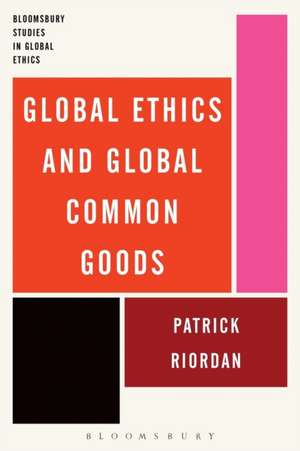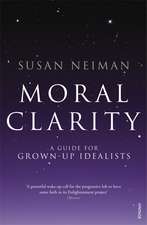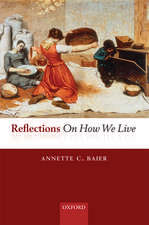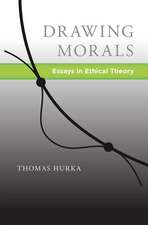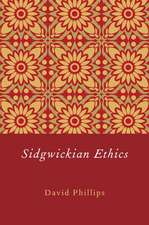Global Ethics and Global Common Goods: Bloomsbury Studies in Global Ethics
Autor Patrick Riordanen Limba Engleză Paperback – 27 iul 2016
| Toate formatele și edițiile | Preț | Express |
|---|---|---|
| Paperback (1) | 256.77 lei 6-8 săpt. | |
| Bloomsbury Publishing – 27 iul 2016 | 256.77 lei 6-8 săpt. | |
| Hardback (1) | 773.45 lei 6-8 săpt. | |
| Bloomsbury Publishing – 17 dec 2014 | 773.45 lei 6-8 săpt. |
Preț: 256.77 lei
Preț vechi: 330.80 lei
-22% Nou
Puncte Express: 385
Preț estimativ în valută:
49.13€ • 51.44$ • 40.75£
49.13€ • 51.44$ • 40.75£
Carte tipărită la comandă
Livrare economică 10-24 aprilie
Preluare comenzi: 021 569.72.76
Specificații
ISBN-13: 9781474294263
ISBN-10: 147429426X
Pagini: 232
Dimensiuni: 156 x 234 x 12 mm
Greutate: 0.33 kg
Ediția:NIPPOD
Editura: Bloomsbury Publishing
Colecția Bloomsbury Academic
Seria Bloomsbury Studies in Global Ethics
Locul publicării:London, United Kingdom
ISBN-10: 147429426X
Pagini: 232
Dimensiuni: 156 x 234 x 12 mm
Greutate: 0.33 kg
Ediția:NIPPOD
Editura: Bloomsbury Publishing
Colecția Bloomsbury Academic
Seria Bloomsbury Studies in Global Ethics
Locul publicării:London, United Kingdom
Caracteristici
Offers a distinctive perspective on those issues and debates surrounding global common goods
Notă biografică
Patrick Riordan teaches political philosophy at Heythrop College, University of London, UK. He is a member of the Heythrop Institute: Religion & Society. His previous publications include A Grammar of the Common Good: Speaking of Globalization (Continuum, 2008).
Cuprins
1. What Is Good? 2. Is There A Highest Good? 3. Public Goods or Common Goods?4. Shared Meaning5. The Rationality of the Good6. The Common Goods of International Relations7. Game Theory 8. Global Justice and the Global Good9. Universal Human Rights10. A Common Humanity11. The Law of Peoples12. Case Study: Europe's Common Good13. ConclusionBibliography Index
Recenzii
Riordan's Global Ethics and Global Common Goods is exceptional. Richly theoretical debates about distinctions between liberal notions and common good notions run alongside more practically focused debate about how to find agreement in the quest for international cooperation. This much-needed book draws upon an ancient tradition to generate an innovative trajectory in global ethics today.
The expression 'the common good' is often uttered but rarely analysed; indeed it is often little more than a political cliché. In this timely study Patrick Riordan engages in analysis drawing upon classical sources and contemporary arguments and provides a clear and very useful treatment of the concept, revealing its richness and applicability in relation to global moral and social philosophy.
The importance of the book's topic cannot be overestimated and the author is clearly familiar with the literature ... [It] provides a good introduction, not only to the topic itself but also to several relevant authors.
Natural law ethics begins from a variety of basic goods. It asks what are the goods that constitute that variety, and how individuals can adequately respond to these goods. What is the corresponding political philosophy? What might a natural law global ethics look like? What has the natural law approach to say about the environment, the economy, international law, human rights? Patrick Riordan's philosophical exploration of these questions is careful, learned, ambitious, and ground-breaking. And it could not be more timely.
The expression 'the common good' is often uttered but rarely analysed; indeed it is often little more than a political cliché. In this timely study Patrick Riordan engages in analysis drawing upon classical sources and contemporary arguments and provides a clear and very useful treatment of the concept, revealing its richness and applicability in relation to global moral and social philosophy.
The importance of the book's topic cannot be overestimated and the author is clearly familiar with the literature ... [It] provides a good introduction, not only to the topic itself but also to several relevant authors.
Natural law ethics begins from a variety of basic goods. It asks what are the goods that constitute that variety, and how individuals can adequately respond to these goods. What is the corresponding political philosophy? What might a natural law global ethics look like? What has the natural law approach to say about the environment, the economy, international law, human rights? Patrick Riordan's philosophical exploration of these questions is careful, learned, ambitious, and ground-breaking. And it could not be more timely.
